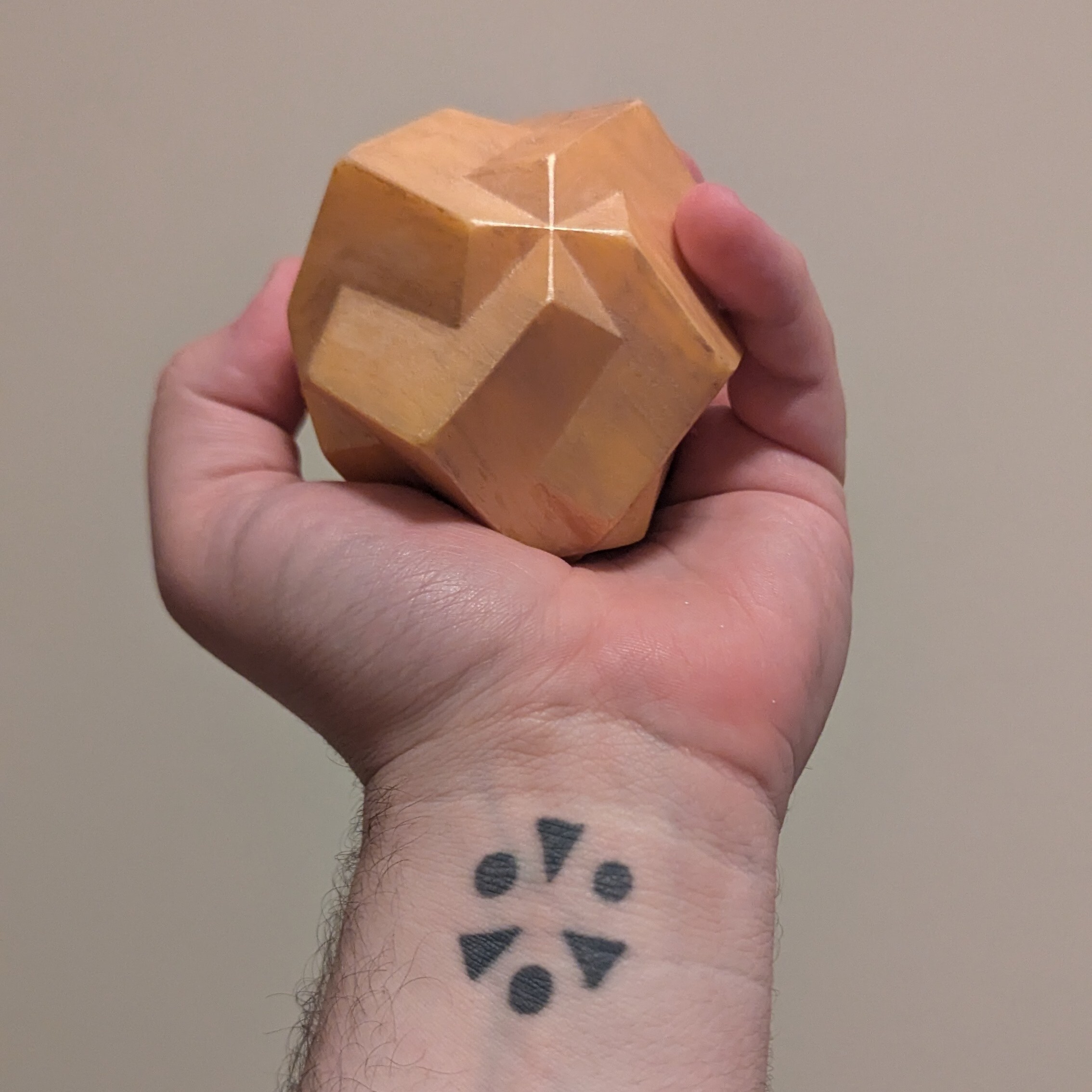What about similar oddities in English?
(This question is inspired by this comic by https://www.exocomics.com/) (I couldn’t find the link to the actual comic)
Edit: it’s to its in the title. Damn autocorrect.
One of my favourites is the word jam, which can mean:
- A fruit preserve
- Traffic that’s stopped
- To play music
- A door that won’t open
- A difficult situation
- To force something in somewhere it’s not supposed to be
- To interrupt a signal
- Something you don’t like or can’t do (“that’s not my jam”)
And probably others, all spelled and pronounced the same way but with wildly different meanings depending on the context.
The other English thing I find super interesting is how there’s a sort of unspoken but very clearly understood order to adjectives. So for example, if I say “The big old red wooden door” it works as a description, but if I say “The wooden old red big door” it sounds weird even though it’s the same information. People aren’t usually formally taught the order (as far as I know), but everyone seems to understand it.
Would be interested in more about the order - wondering if there is a name for that? I have been called out by teachers and friends and colleagues about strange sentences and it was often because I wouldn’t write the ‘normal’ way. I’ve learned the conventions over the years and often find myself making edits to swap words and phrases around to meet expectations.
Apparently it’s called the Royal Order of Adjectives, and it’s essentially: determiner, opinion, size, shape, age, colour, origin, material, qualifier.
You don’t have to use all of those in the description, but that’s broadly the order to use them in to make it sound ‘right’. So for example in the comment I made above, it fits because I used:
- determiner (The)
- size (big)
- age (old)
- colour (red)
- material (wooden)
in that order. I’m sure I was never taught that in any organized way (I just had to look up what it was called lol) but I still got it in the right order anyway just by typing it out in the way that felt right, which I think is interesting.
I’ve never been a fan of read/read/red They’re too popular to all be comingled like that.
Just place read/read with Peruse/Perused
“well” is a noun, a verb, an adjective, an adverb and an interjection
Words that produce the same sounds should have same spelling. Read in past tense and red is the same sound, so why isn’t past tense of read - red?
Why most ‘c’ in words produce ‘k’ sounds?
Car and kar also produce the same sounds, so why C instead of K?
English pronunciation is weird. It can be mastered through tough thorough thought though.
English a very difficult language
The English language is so retarded yet we use it for international communication, and it is too late to stop it.
The problem is the spelling, not the language. But the problem with spelling reform is that it necessarily favours certain dialects over others so you can never please everyone.
Welcome to english, where rules are actually the exceptions
I before E, except after C!
As long as you don’t count the word caffeine. Or protein. Or species. Or seize or heinous or leisure or weird or feign or their or reignite or any of the other 923 words that are exceptions to this rule lol.
I found it! https://www.exocomics.com/193/
English has way more vowel sounds than it has vowels.
- jack
- barn
- arena
- ball
- able
- rare
Those are just words where the primary vowel letter is “a”.
The terrible attempt to solve this is by using double letters, but then consistency goes out the window. There’s times when “ea” is a single vowel sound like /rid/ (reed) or /rɛd/ (red). But it can also be /ɛrn/ as in earn, which rhymes with urn and burn. It can be /ˈɡɹeɪt/ as in great, where the “ea” is a diphthong and pronounced like the “a” in grate or vague. Or, for more fun, the two letters can each fully get their own pronunciation like “react” or “theatre”.
We’re really at the “bearn it all down and start over” stage with English. Let’s just all agree to switch to español.
The digraph oo is pronounced at least six different ways:
- boot, proof, boost, scoop, moon
- book, foot, look, cookie, good
- floor, poor, door, moor
- flood, blood
- zoology, cooperative
- brooch (just brooch; there doesn’t seem to be any other word in the whole language using this sound for oo).
Are the first 2 lines really different?
Genuine question from a non native speaker.
first line is a long oo, second line is a short oo.
Oh I see it now. Thanks for the explanation
That’s the fun part, depending on your dialect and regional accent, sometimes there is no discernable difference in some of these lines. But each line has distinct pronunciation from each other in some dialects.
Yeah I went through them again and see how it makes a slight difference but I am slavic and you can definitely hear it when I speak especially with my þ, ð and r sounds. The r especially after speaking for more than 15 minutees my tongue just gives up and I cannot make the weird soft english version of it. The probounciations I use are all over the place.
If you want to have some fun with US regional accents , Baltimore is a classic.
https://youtu.be/Esl_wOQDUeE (1min)
Oh the iohn ohn uhhrn irn. That’s a classic
Ehh technically I think they are the same but in common pronunciation they differ subtly. Don’t overthink it though.
Brooch and mooch.
But, aren’t these the same sounds as boot / proof / boost etc.?
Brooch is pronounced like roach
It may be pronounced either way, and may also be spelled “broach”, an alternate spelling which is very common although probably slightly less than this chart implies given multiple meanings of “broach”.
I’m not really informed on this history of this word, but I think it’s possible that the “brooch” spelling increased in frequency along with the pronunciation that rhymes with “mooch” while people who pronounce it to rhyme with “roach” are more likely to spell it as “broach”.
Floor/door and poor might differ depending on dialect
And the whole point of zoology and cooperative is that they aren’t digraphs (hence why some super posh people write coöperative)
Just remember

Pretty sure the past tense of “lead” is actually “led.”
Unless of course you’re referring to the type of metal, lead, which I guess the meme isn’t clear on.
Pretty sure there’s a chemical element named “lead”
I heard lead leads in weight.
Interesting if true.
And German has a word for it: Blei
Bly in Swedish. But we add some weirdness to the Bly part so a “lead pencil” is blyertspenna (“penna” meaning pencil). I can’t think of another word where that specific addiction is used, and I have no idea what it means.
I’ve looked it up and “blyerts” means “black lead, graphite” from German “Bleierz” (lead-ore).
That would explain why a pencil, which contains a “lead” (actually a polymer or graphite now) is Bleistift
Some call it differently because it doesn’t contain lead anymore but Bleistift is still the common name
It’s not saying anything about past tenses in that meme, it’s just saying that each word has two different pronunciations that rhyme with the other.
What’s not clear? It’s written right there!
It’s all about led vs lēd.
I had to look this up.
And today I learned ALL my brit friends are spelling it wrong. That’s more than two!
Brits aren’t “spelling it wrong” any more than those in the US are. It’s just cultural differences. Do you also claim Germans spell things wrong? Or the Chinese?
Also the language is called English. By default, the English are doing it right and anything else is wrong. Maybe better, the argument can go for decades longer, but if anyones wrong its everyone else.
My point is no one is wrong. Well, you are, but not for the way you spell things.
My wife and I had a good snicker one time when I brought home edamame peas in the shell.
They were shelled, but she wanted them shelled.
Flammable/imflammable is another one that comes to mind.
English has many contronyms.
- Clip: to attach (clip X to Y) or detach (clip coupons)
- Dust: to remove dust or to add it (dust the cake with icing sugar)
- Fine: excellent (fine wine) or not great but decent (it’s fine)
- Left: remaining (I have 5 left) or gone (I had some but they left)
- Oversight: supervision (he had oversight over the whole process) or lack of supervision (I forgot to do that, it was an oversight)
As carved into history by Dr. Nick:

And the alarm goes off means it actually starts ringing. Weird language indeed!
And this might just be a UK thing but if a person goes off it means they get really angry. And it can mean to leave for somewhere.
So a firework goes off which makes the fire alarm go off which makes the safety officer go off. Then he goes off to get a fireman. But he leaves the milk out, so it goes off.
Also sanction and sanction, same word but completely opposite meanings.
Pitted olives got me in a similar fashion.
It’s “its,” by the way.
This is the grammar thing I fuck up the most, and I don’t call people on it because I’m pretty sure I don’t know how it works. Autocorrect changes it & I just say “oh, whoops”, and it still looks wrong…
it’s means “it is”. It is really not difficult, just pretend you are Data and swear off contractions.
Ah, thanks for the reminder to look through some TNG again. Data is such a great character and fills the role of the outsider looking in perfectly.
Plus he’s a sex toy, which is cool. If peak Denise Crosby wanted to find out if I was fully functional, I might bust a hydraulic hose right there.
I think the contraction vs possesive thing messes with me, and my brain can never settle on what goes where when, how, or why…
Just try changing it to “it is”. If the sentence still makes sense, it’s “it’s”. Otherwise it’s “its”.
Here’s a shortcut: test if you could drop “his” into the same spot and have it make sense. (And of course you’d never write hi’s or his’s.) If “his” would work, “its” would work.
My keyboard is very keen on completing “it’s” regardless of context. I imagine this is the case for most people, since usually I see “it’s” when “its” would be correct.
I also think it’s difficult to know that “it’s” is wrong to use because it feels like it follows the common apostrophe for possession rule:
“Australia’s capital is Canberra” -> “Australia is the largest country in Oceania. It’s capital is Canberra.” (wrong, but intuitive)
The comedic timing of this strip is actually really good.


















